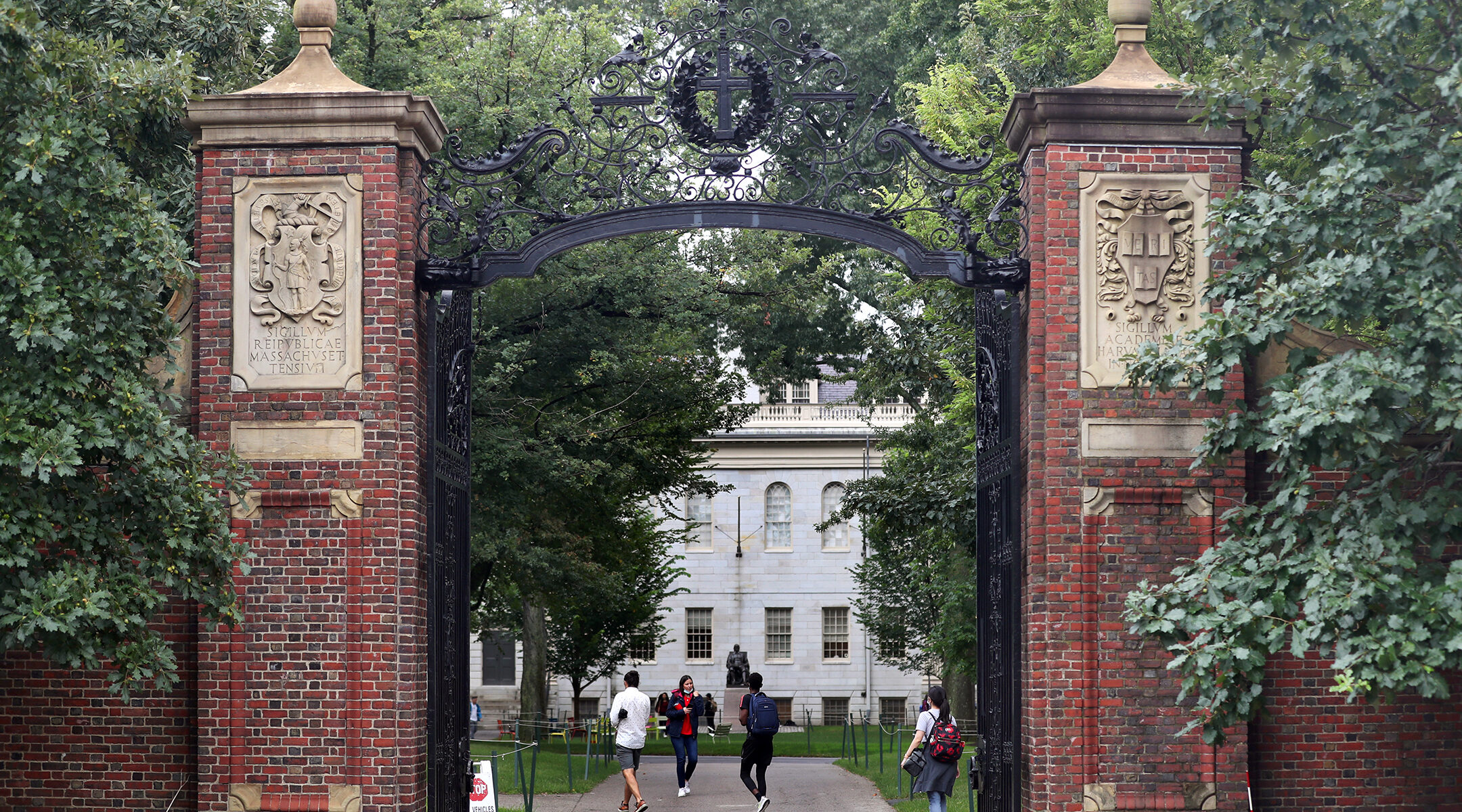CEOs Seek Blacklist After Harvard Groups' Anti-Israel Statement
CEOs seek blacklist after Harvard groups' anti-Israel statement. Top business leaders press Harvard to reveal student identities following a controversial letter.
Author:Tyreece BauerReviewer:Elisa MuellerOct 12, 2023107.5K Shares1.6M Views

In the wake of a controversial letter, CEOs seek blacklist after Harvard groups' anti-Israel statement.Billionaire hedge fund CEO Bill Ackman and several other high-profile business leaders are pressing Harvard University to reveal the identities of students from organizations that exclusively blamed Israel for the deadly attacks by Hamas.
The underlying intent is to blacklist these students, although some have since distanced themselves from the contentious letter.
“One should not be able to hide behind a corporate shield when issuing statements supporting the actions of terrorists,” said Ackman on X, formerly known as Twitter.
According to Ackman, if these members stand by the letter, the signatories' names “should be made public so their views are publicly known.” The Pershing Square Capital Management CEO's objective is to ensure his firm and others avoid employing students associated with the Harvard groups that endorsed the letter.
Amidst the controversy, some Harvard student groups have retracted their endorsements.
Several other business heads, including leaders of FabFitFun, EasyHealth, and Dovehill Capital Management, have supported Ackman's appeal.
Jonathan Neman, CEO of Sweetgreen, stated on X, saying:
“„I would like to know so I know never to hire these people.- Jonathan Neman, CEO of Sweetgreen
Both Neman and Ackman refrained from commenting further.
Concerns About Safety and Fairness
Larry Summers, the distinguished economist and former Harvard president, has cautioned against quick judgment. Summers highlighted the complexity of group endorsements, saying, "Many in these groups never saw the statement before it went out. In some cases, those approving did not understand exactly what they were approving.” He also expressed sympathy for those who might have been “naive and foolish,” urging the public not to vilify them.
Harvard Professor Laurence Tribe, after an initial agreement with Ackman, decided against joining the call for name publication.
Tribe conveyed in an email:
“„Naive and stupid as they may have been, I now think it would be an overreaction to penalize them permanently by publishing their names.- Laurence Tribe, Harvard Professor
Stephen Sullivan, CEO of Meds.com, suggested that anger should be directed at administrators and educators rather than penalizing students.
Harvard Responds
Though Harvard University did not immediately provide an official statement, Harvard President Claudine Gay clarified that “no student group – not even 30 student groups – speaks for Harvard University or its leadership.”
The controversy was sparked by a joint statement from a coalition of Harvard student groups after the Hamas attacks, which led to over 1,000 Israeli and 14 American casualties. The statement from the Harvard Palestine Solidarity Groups read, “We, the undersigned student organizations, hold the Israeli regime entirely responsible for all unfolding violence.”
Jake Wurzak, CEO of Dovehill Capital Management, voiced his belief that the students should be named, stating, “Free Speech is paramount. Words have meaning and students shouldn’t be allowed to hide behind an institution.”
Students Withdraw Signatures
The Harvard Crimson revealed that at least five of the original 34 endorsers retracted their endorsements. Various reasons were cited, including miscommunication, lack of due diligence, or unawareness of the letter's content.
Jonathan Greenblatt, CEO of the Anti-Defamation League, while uncertain about disclosing student names, emphasized the importance of accountability. Greenblatt remarked, “This is what we learn to do in elementary school. It’s hard for me to understand why it’s complicated for people at Harvard University.”
Consequences Beyond Harvard
Elsewhere, a statement from the NYU Student Bar Association president led to immediate repercussions. The student faced a job offer retraction from law firm Winston & Strawn after claiming Israel's sole responsibility for the substantial loss of life.
Reflecting on Values
Harvard President Claudine Gay reiterated her stance against the "terrorist atrocities perpetrated by Hamas,” condemning any form of inhumanity, regardless of individual perspectives on the region's conflict origins.
Jeffrey Sonnenfeld of the Yale School of Management underscored the importance of personal accountability, stating that "villains cannot be celebrated as heroes.”
Finally, the Anti-Defamation League, in light of a rising global antisemitism wave, has rallied CEOs to publicly oppose hate and commit to combating antisemitism. Companies such as Accenture, Adidas, and the NBA are among the signatories.

Tyreece Bauer
Author
A trendsetter in the world of digital nomad living, Tyreece Bauer excels in Travel and Cybersecurity. He holds a Bachelor's degree in Computer Science from MIT (Massachusetts Institute of Technology) and is a certified Cybersecurity professional.
As a Digital Nomad, he combines his passion for exploring new destinations with his expertise in ensuring digital security on the go. Tyreece's background includes extensive experience in travel technology, data privacy, and risk management in the travel industry.
He is known for his innovative approach to securing digital systems and protecting sensitive information for travelers and travel companies alike. Tyreece's expertise in cybersecurity for mobile apps, IoT devices, and remote work environments makes him a trusted advisor in the digital nomad community.
Tyreece enjoys documenting his adventures, sharing insights on staying secure while traveling and contributing to the digital nomad lifestyle community.

Elisa Mueller
Reviewer
Elisa Mueller, a Kansas City native, grew up surrounded by the wonders of books and movies, inspired by her parents' passion for education and film.
She earned bachelor's degrees in English and Journalism from the University of Kansas before moving to New York City, where she spent a decade at Entertainment Weekly, visiting film sets worldwide.
With over 8 years in the entertainment industry, Elisa is a seasoned journalist and media analyst, holding a degree in Journalism from NYU. Her insightful critiques have been featured in prestigious publications, cementing her reputation for accuracy and depth.
Outside of work, she enjoys attending film festivals, painting, writing fiction, and studying numerology.
Latest Articles
Popular Articles